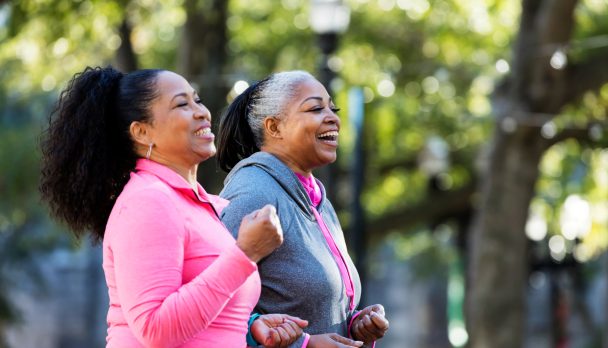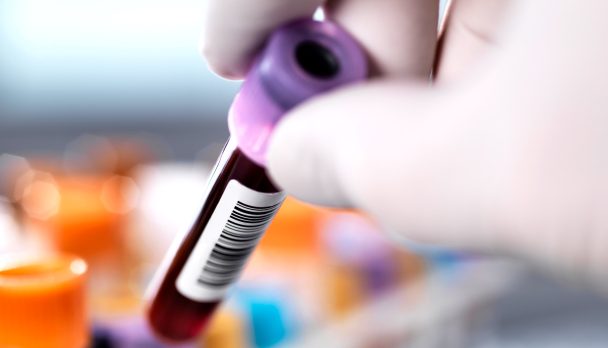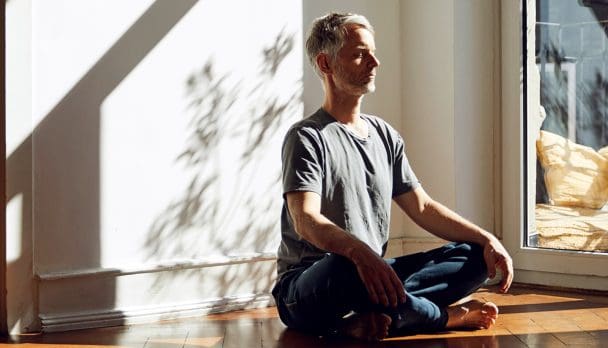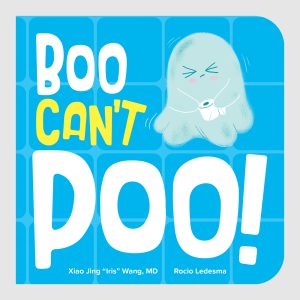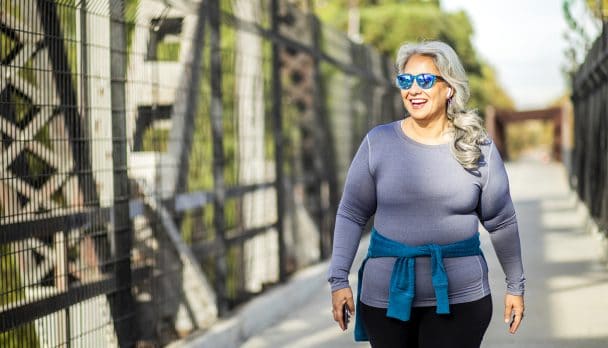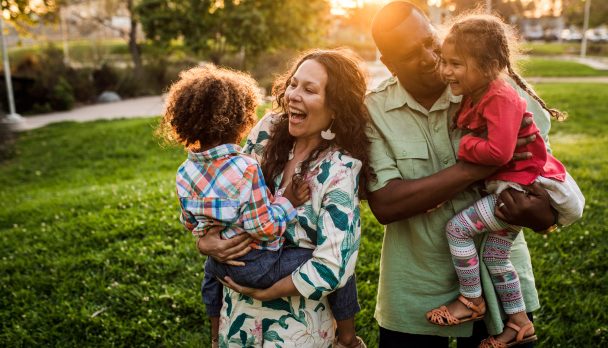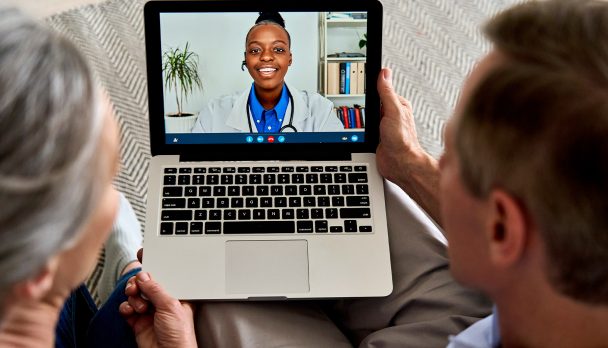As we age, so do our organs, including our heart. So what can we do to make the most of our heart health as we get older?
On this episode of Aging Forward, we talk with cardiologist Dr. Stephen Kopecky about how it’s never too late to improve our heart health, and how even small adjustments to our lifestyle habits—from diet to exercise to sleep—can have a significant impact.
Want more Aging Forward? Find us on Apple, Spotify, or wherever you listen to podcasts.
Read the transcript:
Dr. Chen: This is Aging Forward, a podcast from Mayo Clinic about geriatric medicine and the science of healthy aging. Each episode, we explore new ways to take care of ourselves, our loved ones, and our community – so we can all live longer, fuller lives. I’m Dr. Christina Chen, a geriatrician and internist at Mayo Clinic in Rochester, Minnesota, and this episode, we’re talking about heart health.
Our guest is Dr. Stephen Kopecky, who is a professor of medicine in the Department of Cardiology at Mayo Clinic in Rochester, Minnesota. He is also the Chair for Education in our Preventive Cardiology Department and the director of the Statin Intolerance Clinic. Welcome, Dr. Kopecky.
Dr. Kopecky: It’s great to be here. Thank you. Christina.
Dr. Chen: Dr. Kopecky, every time I see the data about the top causes of death, cardiac disease is always number one, year after year. After all these years, has there been any improvement at all in lowering those numbers?
Dr. Kopecky: Yeah, well clearly we have. If you look at the mortality rates from cardiovascular disease, they have come down tremendously. Especially some of the things that are Preventable like rheumatic fever and rheumatic valve disease. But in recent years- Although that continues to go down, the decline is slowed.
Dr. Kopecky: And there’s actually some evidence that the group the people are in their fifth sixth seventh decades of life -You know the late 50s 60s- That actually their mortality has gone up a little bit.
Dr. Chen: Interesting.
Dr. Kopecky: And that, of course, was related somewhat to COVID, but remember during COVID, the number one cause of death still was heart disease, even during those three or four years of the pandemic, both in the U. S. and worldwide.
Dr. Chen: So, it’s changed in some ways in terms of the type of heart condition that’s causing deaths and the underlying root cause.
Dr. Kopecky: Very true. The underlying causes have changed. And now diet is unfortunately probably the number one cause of cardiovascular disease.
Dr. Chen: Yeah. You know, every organ system changes, including the heart, and so helping our audience understand the physiologic changes with aging that often we can’t do anything about, but there’s a lot that we can do to try to prevent that.
Dr. Chen: So, can you give a general overview of how our cardiovascular system changes as the body ages? And how does that impact function?
Dr. Kopecky: We all see our faces age and our skin and our hair age. But many patients think, oh, on the inside, I’m still 18, I say, you know, I wish that was true, but it’s just not.
Dr. Kopecky: Our skin isn’t as soft, our hair isn’t as pliable. The same with our heart muscle. The heart muscle is like a rubber band, meaning it takes more energy to open it up and fill it up between each beat than to pump. And that gets harder to do for our heart as we go through life.
Dr. Kopecky: And then as our heart has to pump blood through the arteries, which gets stiffer, not softer, they don’t open up as well, our blood pressure goes up, the heart has to work harder to pump the blood through. And people think, well, that’s okay, you know, the heart can do that, but remember, the heart beats a hundred thousand times a day.
Dr. Chen: I forget about that sometimes.
Dr. Kopecky: So if you, you know, if you open a door 100,000 times a day, the hinges will be off by noon, probably.
Dr. Chen: So let’s talk about the conduction system of the heart, which is the electrical flow through the heartbeat. How does that change with age?
Dr. Kopecky: Yeah. The conduction system also has problems, aging problems, and it doesn’t go through as well. We lose heart rate variability, which is a good thing that your heart rate goes up and down throughout the day.
Dr. Kopecky: Then we start to lose the speed of the conduction of electricity through our heart. Some of the junction boxes don’t work anymore as well, and we get a heart block. The big thing, of course, is atrial fibrillation. When you’re 20 years old, one in 20,000 people have atrial fibrillation. However, when you’re 80 years old, one in eight people in America have atrial fibrillation.
Dr. Kopecky: So I call it a disease of Privilege. A privilege of a long and full life.
Dr. Chen: That’s interesting.
Dr. Kopecky: But it’s very common in that age group and we have to deal with it because it’s the number one cause for people to get a pacemaker is atrial fibrillation and you can do things to help prevent it, but you have to start earlier in life.
Dr. Chen: And we should just add that atrial fibrillation is irregular heart rhythm.
Dr. Chen: We know there’s a lot of things we can’t change in terms of genetics and just our aging physiology, but how much of our cardiovascular health do we have control over? I see a lot of older adults who come to me in their 90s And they’re doing great.
Dr. Chen: What was their secret? How much of this can we do for our own health?
Dr. Kopecky: Well, you know, about 10 percent of our health is due to health care, which is kind of depressing. But, the majority of it is our lifestyle. And people say, well, what about genetics? And the genetics are important.
Dr. Kopecky: It may be 20 or 30 percent at most, but our lifestyle can, with the epigenetics affect our genes. Epi meaning around, genetics meaning our genetic code, and our certain good lifestyles will turn off the bad genes and turn on the good genes. So what’s an example of that? Well ,we see patients in our prevention clinic with very high cholesterol, genetically determined.
Dr. Kopecky: We know that if they have a good lifestyle, starting early in life, it doesn’t lower their cholesterol, but it lowers their heart attack and stroke risk. So, your lifestyle is extremely important, but don’t think it’s gonna change, maybe your cholesterol, but it really does help you live longer.
Dr. Chen: Yeah, we’ll get into the details of the lifestyle and nutrition piece in a little bit. But when we think about cardiac disease as a whole, I think we’re most familiar with ischemic heart disease. coronary disease. We think about heart attacks and people who go through bypass surgeries, but there’s also a whole other world of cardiovascular diseases like valvular conditions and -conduction problems.
Dr. Chen: There’s amyloid heart disease that’s more common nowadays, heart failure. And what you’re mentioning in terms of lifestyle, does that affect all cardiovascular conditions as a whole?
Dr. Kopecky: Yes, lifestyle really does– and even some things you wouldn’t think, like congenital heart disease. It’s shown that if a pregnant woman in her first trimester is more active physically, her child will have less congenital heart abnormalities.
Dr. Kopecky: So it affects all parts of our cardiovascular system, starting very early in life.
Dr. Chen: How about some of the things that we don’t think about as much, such as stress and Mental health, emotional health, depression, anxiety, things that we can’t really measure in our blood or biomarkers. How does that impact our cardiovascular health?
Dr. Kopecky: Yeah, the forgotten risk factors in other words. You know, one of them is sleep. And when you and I were training we would brag that we could go up all night and take care of patients and not need sleep. Well, we just had this very interesting, social experiment, last couple of weeks ago called daylight savings time, where we lose an hour, on early Sunday morning, the Monday following the spring forward, losing an hour, heart attack rates go up 27%.
Dr. Chen: Wow.
Dr. Kopecky: And unfortunately in fall, when we gain an hour, Heart attack rates don’t go down until Tuesday, and then it’s only about 20 percent, so it doesn’t make up the difference. But sleep is incredibly important, and we all brag about, oh, I can do without it, it’s just an hour of sleep. Yeah. But an hour of sleep is important, and we all think that, it won’t bother me, but it does.
Dr. Chen: Right.
Dr. Kopecky: And so it’s important to go to sleep at the same time, wake up at the same time. I ask my patients, don’t set an alarm to wake up. Set an alarm to go to sleep or get ready to go to bed. And you shouldn’t need alarm to wake up unless you’re traveling to A different time zone. Just wake up on your own.
Dr. Kopecky: That means your body’s ready to go
Dr. Chen: Can you comment a little bit about sleep apneas?
Dr. Kopecky: Initially sleep apnea did not look like it affected the heart that much, but of course it does. It affects coronary disease. It affects the rhythm of the heart. More people are more likely to have irregular heartbeats, atrial fibrillation, more likely to have ventricular arrhythmias and sudden cardiac death.
Dr. Kopecky: Usually occurs somewhere early in the morning between 2 and 6 a. m. So, it does affect it, and of course it would- because the oxygen that gets in the blood, the heart has to pump that blood, not only to the body, but the heart has to pump its own energy supply. Which is unlike most pumps. You know, most pumps you can plug them into the wall.
Dr. Kopecky: But the poor heart has to not only take care of the body, but also itself. So it’s an extra stress on the heart.
Dr. Chen: Yeah, I think we often forget that, you know, we spend a third of our lives sleeping. And that sleep quality is so incredibly important, not just for cardiac health, but cognitive health.
Dr. Chen: And I wonder if there’s that link between anxiety, depression, that’s closely linked to poor sleep that somehow is involved in this whole cascade of events.
Dr. Kopecky: Very clearly it does. And then that starts to affect diet. You don’t get enough sleep, you eat more poorly. You don’t exercise as much. Then you’re more anxious and depressed because we know that exercise can certainly decrease Depression and lower anxiety. It’s been shown to Lower the blood pressure response, you know, that flight or fright phenomenon we have when we’re challenged, our blood pressure goes up, good exercise will lower that.
Dr. Chen: I think that’s so important to understand that a healthy mind leads to ultimately a healthy body, which then translates to healthy behaviors and An overall better outcome.
Dr. Kopecky: That’s so true.
Dr. Chen: It’s all linked all comes back in one big cycle.
Dr. Kopecky: Very true.
Dr. Chen: You know, we always want to focus on early preventive health and being as proactive as possible as early as possible. But in my practice, I see older adults, they sort of lose hope because they think, Oh, I’m in my eighties, I have heart disease, it’s kind of too late.
Dr. Chen: But my goal is to help them understand it’s not too late. So from your expertise and your research perspective, what do you think is the best way to take care of our heart health throughout the whole aging spectrum?
Dr. Kopecky: I certainly agree with you.
Dr. Kopecky: I tell patients, nothing you do is ever too little to improve your heart health and nothing you do in your life is ever too late. You know, it can help you at any age because your heart is a muscle. It doesn’t know the year it was born. You tell it to work, you tell your muscles to run, your heart to pump harder.
Dr. Kopecky: It likes that. That’s what a muscle does.
Dr. Kopecky: And so you tell it to exercise, it actually helps it. And it will be younger in many ways with the physical activity, both the heart and the skeletal muscle.
Dr. Kopecky: So we tell people not only to be active, but don’t be sedentary. When you’re sedentary, the body wants to do things to help us live longer and help our species live longer.
Dr. Kopecky: And if you’re sedentary, it says, okay, he’s sitting in the cave all day. He’s not going out and collecting food. You know, others are bringing him food.
Dr. Kopecky: We’d like him to live. However, we want our species to survive even more.
Dr. Chen: Interesting.
Dr. Kopecky: So we’re gonna shut him down. We don’t want him here anymore if he’s not a productive member of our clan. And remember, the body’s thinking back a million years ago. And so it’s been shown that if you’re sedentary, even if you’re active, physically active, if you sit all day at any age, it increases your risk for heart attack and of dying. So very clearly, your lifestyle is very important in that regard.
Dr. Kopecky: The foods we eat are incredibly important. We live in such a pro inflammatory world. You know, the ultra-processed foods that many of our elderly eat because they’re easy to get and they’re inexpensive.
Dr. Kopecky: The average is about 7 or 8 servings a day of ultra-processed food. It should be about 2 or less. And that increases inflammation.
Dr. Kopecky: Inflammation, another way to think about it is just the accelerated aging process. You know, the inflammation on the tissues. And if we can reduce that inflammation with better eating, better physical activity, less stress, better sleep, it will slow it.
Dr. Chen: Speaking of diet and nutrition, there’s so many diets out there, you mentioned the Mediterranean, there’s plant-based, there’s vegan, there’s different diets to help promote weight loss, which some may work for others. There’s intermittent fasting, all these different recommendations. What do you think is the best diet for overall cardiac health?
Dr. Kopecky: For cardiac health, we’ve had some great Mediterranean diet studies that have shown, tremendous benefit, not just to the heart, but also to the brain, to lowering cancer, to lowering arthritis pain, to lowering sexual dysfunction, atrial fibrillation, and on and on.
Dr. Kopecky: It’s more fruits, vegetables, legumes, whole grains, a little bit of meat, maybe three ounces a day, and for sure make it the whole piece of meat, not the chopped up sausage or hamburger, which has a lot of other things in it.
Dr. Kopecky: A little bit of fish, two or three times a week. Extra virgin olive oil has actually been shown to be very anti-inflammatory. A few nuts, maybe 10 or 12 almonds a day, or the equivalent. In cutting down the ultra processed foods, those things really do help tremendously .
Dr. Kopecky: And you can find that in just about every culture, every country in the world.
Dr. Chen: Yeah, just finding that combination.
Dr. Kopecky: Yeah.
Dr. Chen: How about the exercise piece? I know we try to encourage people, just don’t be sedentary. And then their response is typically, oh, well, I walk once a day.
Dr. Kopecky: Yeah.
Dr. Chen: And I try to go up the stairs or I just walk around my home. Is that enough? What’s the best exercise?
Dr. Kopecky: We try to tell people three things. One is don’t be sedentary. Yeah. And that’s the worst thing. It’s better to be asleep than be sedentary. The second thing is, you know, try to do some aerobics, the walking, but try to put some intervals in there, because that’s what we, our species has done for millions of years.
Dr. Kopecky: We didn’t used to get up in the morning and leave the cave and turn to our significant other and say, Honey, I’m going to jog for an hour and bring you a latte on the way home. You’d say, I’m going to leave the cave, try to find food, not be killed. You’d walk out, you’d see a bunny, you’d chase it for 30 seconds, not 30 minutes, because it outruns you.
Dr. Chen: Hmm.
Dr. Kopecky: Or something would chase you, a saber-toothed tiger. It would only be very short because it could outrun us.
Dr. Chen: We don’t have those around nowadays. Thank God, yeah.
Dr. Kopecky: But anyway, we would do very short intervals. That’s how we would climb a tree and get some food or whatever. And that’s what actually is probably one of the best things for us, is interval activity.
Dr. Kopecky: And you can do it in shorter amounts of time. So instead of taking a 14-minute stroll, you can do a 7 minute with a couple of intervals, which uses up the same amount of energy and calories, and it’s just as good, if not better, for your heart.
Dr. Chen: Hmm. That’s great to know. How about resistance training, weight training, those aspects?
Dr. Kopecky: Yeah, the third part is do some lighter weights to fatigue. You don’t try to do real heavy weights. That’s really not so great, especially as you age. You know, we never were the strongest monkey in the forest. All you really want to do is keep the muscles strong and healthy and pulling on the bones, which lowers the osteoporosis.
Dr. Kopecky: And it really helps your blood pressure. As you exercise vigorously, with intervals, there are signals that are sent out almost immediately, one of them to your blood vessels. So the blood vessels are told to get bigger. The muscles say, I need the blood. And if I don’t get the blood, we’re not surviving.
Dr. Kopecky: And so the exercise with intervals especially changes your messenger RNA response, which means it changes the way your genes work. Your blood vessels put out a chemical, endothelin, endothelin. Dilates the arteries more, makes them bigger. The bigger the pipe, the lower the pressure in the long run.
Dr. Kopecky: So it really helps our blood pressure tremendously and remember because the heart works so hard every day, a hundred thousand times, that it really makes a big plus benefit for our heart.
Dr. Chen: Yeah, yeah. So not heavy weights, huh? Is that because it might strain the joints and are we just trying to maintain muscle integrity at this point?Not so much bulking?
Dr. Kopecky: Yeah, you don’t need that heavy of a weight. It’s more just muscles to you know strengthening to fatigue and that’s just as good. The way I explain it to patients is, you know, if you ever watch some of these football games there’s always a guy on the field, they call them some immovable object like, refrigerator or icebox or something.
Dr. Kopecky: And they’ll say, gee, I was in the weight room with that guy and he was just an animal. He could bench press 550 pounds. Well, when he does that, his blood pressure goes to 3, 400 systolic. It may just be 10 seconds, 20 seconds, but that’s, it’s huge and it takes its toll. You know, we never really got to where we are in this planet, our species didn’t by being the strongest animal on the planet. We got there other ways, but we don’t need to be the strongest. The evidence is it just doesn’t help us live longer.
Dr. Chen: Interesting. Okay. That’s a good perspective. How about all the supplements out there? There’s, it’s a billion-dollar industry and there’s, you know, omegas and there’s new supplements to promote a reversing of aging and cellular senescence.
Dr. Chen: What’s your experience with that and what’s actually helpful?
Dr. Kopecky: Yeah. The natural history of supplements is very interesting. And I tell patients, if you want to take a supplement, take it quick, because in a few years we’re going to find either it’s no good or it hurts you. Look at niacin– niacin was pushed a lot for lowering cholesterol. It actually may lower cholesterol, but doesn’t lower heart attacks. It does not lower cardiac events. If you’re on a statin, it makes the statin toxicity be greater.
Dr. Kopecky: Things like high dose, some of the vitamins, vitamin E. That’s really not helpful, certainly not for your heart. The fish oil, you mentioned the omegas. You know, we took it for years, and everybody thought, oh, instead of eating fish, I’ll take omega 3 fatty acids– that hasn’t actually borne out to be helpful. The omega 3s, the DHA and the EPA in big, huge randomized trials have not been shown to lower cardiac events.
There is some evidence that pure EPA may help eicosatetraenoic acid, but, that’s harder to find. And I just tell patients just eat the fish instead.
Dr. Chen: Hmm. So, when they come with all these supplements, are you working towards getting them off these high pill burden?
Dr. Kopecky: These ideas of taking a single supplement to negate your lifestyle is just not true.
Dr. Kopecky: As you age you need a little more protein, so protein supplements, if they’re healthy are good, and where we live in northern United States, we need a little vitamin D, some calcium for osteoporosis, that’s certainly fine.
Dr. Kopecky: But I frequently just point out to patients that we’ve never shown that a pill can ever replace a good lifestyle. In any area of medicine.
Dr. Chen: That is a key point is that concept right there. You know, as a primary care provider, we’re often seeing people in the first pass phase.
Dr. Chen: They come into the clinic for preventive health and we’re seeing them for their yearly checkups and screening a multitude of different health maintenance items and we try to get to their cardiac health if we can. But there’s so many things to target. What are some high yield things we should be doing routinely to make sure that we’re really optimizing their cardiac health early?
Dr. Kopecky: People have talked about the exam, including other things like history about your physical activity. You know, that’s very important. How do you eat? That’s very important. And giving some information to patients and reminding them you don’t have to change all at once.
Dr. Kopecky: In fact, you can’t. We’re humans. We change slowly on how we eat and our physical activity. I think we are finding that certain genes are detrimental. About 20 percent of people have a high lipoprotein A. And we’re starting to check that routinely. We’ll have drugs out probably in the next few years.
Dr. Kopecky: They’re being studied now by the, you know, FDA, to see if they will lower heart attack rates. And if they will, I think they will bring them out.
Dr. Kopecky: But it’s helpful just to know your risk. If you have these genes and it’s more important to have a healthy lifestyle. tell patients frequently, you have a new part time job called your health because really no one else cares about your health more than you except maybe your spouse.
Dr. Kopecky: A lot of institutions care about your illness. We’re paid to treat illnesses. We’re not paid to keep people healthy. And that really should start at home, in the school, and you need to be on top of that so I say optimize the technology . These new blood pressure monitors are really accurate.
Dr. Kopecky: If you have a nice regular rate, get one, hook it to your phone. If you don’t know how to do that, ask your five-year-old little neighbor or granddaughter. She’ll show you in about 30 seconds. And check your blood pressure three or four times a week. And let me know what it is, as the provider.
Dr. Kopecky: And if it’s above certain levels, we need to do something about it. Which is less sodium, more physical activity, less ultra processed foods . Let’s help you with that.
Dr. Kopecky: So there are lots of things people can do that really, starts with them. And many people will say, oh, I’ve got this new watch, and I have this new gizmo, and, you know, I say those things are great if you pay attention to them. But we’ve had some great technology for years that we haven’t paid attention to.
Dr. Kopecky: And they’ll say, well, what’s that doctor? And I’ll say, well, it’s called the bathroom scale and the bathroom mirror, just pay attention to the things you have in front of you.
Dr. Chen: I wish I had more time to do that. Honestly, I have 30 minutes to see a patient, you know, 20 minutes of that time is just reviewing their health history.
Dr. Chen: I just wish I had more time to talk to them about their lifestyle. I often don’t get into that until they start to struggle with certain things or we often don’t talk about what you eat throughout the day and I wish that was more mainstream into primary care. As well as doing our usual blood pressure monitoring and blood work It’s just one of those things where it’s not integrated enough. It’s not routine.
Dr. Kopecky: You’re exactly right .We have to focus on their illness, which people are having more and more because our lifespan is outlasting our health span by about 20 years now, and that’s where we have to focus now. You’re exactly right. I wish we had more time.
Dr. Chen: Is there a good way that you broach that topic? Because I feel like so many people struggle with their eating habits and obesity and it’s a embarrassing thing for them to talk about and we want them to feel comfortable doing that with their primary care. Are there catchphrases that you use or a good way to help them open up in that aspect of their lives?
Dr. Kopecky: I really do tell them. I try to help them understand that. Nothing, like I said earlier, you do is ever too little or too late. And really, one bite of, say, switching off one bite of sausage, replacing with some black beans, that, after a couple of years, will lower your heart attack rate.
Dr. Chen: Oh, interesting.
Dr. Kopecky: Just walking, I mean, the shortest interval of activity that’s been shown to be helpful is two seconds. Two seconds. Which means it raises your HDL, it lowers your insulin resistance, lowers your blood pressure. So just little things. Incorporate them into your day type things.
Dr. Kopecky: And, don’t be embarrassed if you don’t do it one day. But just try to incorporate it into your lifestyle and every day is a new day.
Dr. Chen: Yeah. So two seconds. That’s all you need. Two seconds. Just like running into a place for two seconds.
Dr. Kopecky: Yeah, the study was actually on a stationary bike, you warmed up for two seconds, went all out for two seconds, and they did that every 15 minutes throughout the day. And I do that frequently when I’m working from home.
I get on my wife’s stationary bike. Will go real hard for say 15 or 30 seconds. And it really clears my mind and helps me focus on what I’m doing.
Dr. Chen: I love that little tidbit. That’s all it takes. And we don’t have to be in our spandex for an hour at the gym at the fitness center.
Dr. Kopecky: I mean, who has an hour? Really? You know, that was, that was the old days.
Dr. Chen: Yeah. Yeah. I love that.
Well, Dr. Kopecky just to get to know you a little bit, get to know, your history, get some of your expert advice…what was the inspiration behind the book that you wrote and the story behind that?
Dr. Kopecky: You know in medical school, I had cancer, and I was single and no kids and it was just a little bump in the road. But then 14 years later, I was on staff at Mayo Clinic, had a wife, three children, age two, five and seven, and then got lung metastases, a different cancer, and that was very different.
Dr. Kopecky: And I started thinking I need to really do something because my sister just died of breast cancer at age 41. And I started looking into it. As I said, I was a treating cardiologist, not a preventing cardiologist, and what I was going to die from was heart disease.
Dr. Kopecky: It was very clear, that’s what gets most of us. And so I started looking at things, ways to prevent heart disease, and found out it’s the same things that prevent Alzheimer’s, that prevents cancers. It’s all the same risk factors, they manifest in different ways.
Dr. Kopecky: And so I was going to get chemotherapy, and now we have this ECG age here at Mayo, that is very interesting. And my ECG age was one year older, so my heart was a year older than my chronologic age, which you don’t want. You want your, face to be younger than your chronological age. You want your heart to be younger. So, I knew I was going to get chemo. The National Cancer Institute says when you get chemotherapy, your heart ages another 10 years. The chemicals are damaging to our heart.
Dr. Kopecky: So I figured I better start changing lifestyle. The stress, the sleep, the eating, the physical activity, no smoking, minimal alcohol. And now, my ECG age is 17 years younger than my chronologic age. So that’s a swing of like 28 years. And so it’s helpful because I’m turning 70 and I’ve been able to see my kids graduate from grade school and high school and things like that And I just want to be here for a long time
Dr. Chen: Well, happy early birthday, you look not a day older than 50.
Dr. Kopecky: Oh, you’re very kind. Thank you
Dr. Chen: I think there’s a lot that we can learn from you And, just curious what do you do now as part of your routine heart health? What do you do on a daily basis and exercise regimen, I suppose?
Dr. Kopecky: The food is really important. The fruits, the vegetables, the legumes, those things, and the second thing is physical activity. I’m not a type of guy that likes to get on the machine just to sweat. That’s not fun. It’s not fun to most people. But I do happen to work at a beautiful place that pays me to sit all day. It’s a wonderful building where I’m five stories up above our break room, so I go down the stairs, I get a bottle of water, run back up.
Dr. Kopecky: Go down later, get a banana, run back up. Go down, get some lunch, run back up. And when I say run, meaning three stairs per second. And which is about 21 inches vertical rise per second. And that’s been shown, actually those intervals, the closer together you do them the better it is. Those have been shown to actually get you in significantly better cardiovascular health after just about six weeks of doing, and if you do them regularly all the time, and just incorporate them into your day, it may sound simple and too simple, but it’s so much better than not doing anything, which is what a quarter of us we don’t do any exercise at all.
Dr. Kopecky: Just to incorporate into your day whatever you do. And I love to –we have a big garden at our house and of course but love to get out there and work hard.
Dr. Chen: How about for older adults who are just more….challenged with movement as a whole. They’re either in wheelchairs or they can’t mobilize much. They can’t walk. Are there things that they can be doing while they’re sitting?
Dr. Kopecky: There really are. And, I frequently say to patients, we have about 200 joints in our body and if one doesn’t work, your right knee, whatever, put it on the ground, you’ll get on a stationary bike, use your left knee and your arms or whatever you can.
Dr. Kopecky: If all you can do is just exercise your finger or your wrist, Do it, whatever it is you have, do it. Just don’t hurt yourself. We don’t want you to feel worse. But, the secret is just trying to incorporate it. And as you say, sitting in a chair, yoga, lifts, you know, we all get out of bed, most of us, and that’s basically a sit up.
Dr. Kopecky: We all get up from sitting off the floor, and we all do planks at some point, when we are laying in bed. So just try to do the things that you do anyway and they can really be very helpful for you. And you can do them at home, do them in a hotel room when you’re traveling, do them in the car driving.
Dr. Chen: Makes things a lot easier that way I’m just curious, you know, we’re talking about technologies, you were mentioning the, ECG-
Dr. Kopecky: Heart age versus chronologic age.
Dr. Chen: Yes, how do you measure that?
Dr. Kopecky: And I was not involved in the original studies here, but our cardiology colleagues were. And we have about 550, 000 patients, so we have their ECGs and everything that’s happened to their heart. And so, we can ask the AI computer, and we’ll tell them these are the people that did have heart attacks, these are the ones that didn’t, these are the ones that died early, these are the ones that didn’t. And the computer will analyze the ECG, which has millions of data on a single, six second EKG, and will actually then apply that to the future.
Dr. Kopecky: And found that, a future data set, it was very accurate in predicting, when they would have cardiac events. And it’s now on our computer, as you know, if you just go to the cardiology tab and click on the AIECG, it will come up and I find it very helpful with prevention. And tell people, you know, your chronologic is 60, your heart age is 70.
Dr. Chen: Hmm.
Dr. Kopecky: This can change within months with eating differently, being more active physically, sleeping better, managing your stress. You can’t get away from stress. You just have to manage, mitigate it and it can change very quickly. So try to work on that. But again, it’s little steps at a time and you’ll come back in six months and say, look, you’re three years younger on your heart age and they really feel happy.
Dr. Chen: Are there a lot of success stories from your clinic where you’re able to help people turn their risk around and help them live better lives because of this implemented program?
Dr. Kopecky: Well, I think so, but you know, we sometimes we get a biased population. Yeah, right. The ones that change come back, the ones that don’t may not come back as much. But I do think that empowering the patient to understand that the little things they do can really help them and how important that is can be quite helpful.
Dr. Chen: Thank you so much, Dr. Kopecky. I think this is, a really insightful conversation
Dr. Kopecky: Thank you, Dr. Chen. It’s been a real pleasure and an honor to be here.
Dr. Chen: Thank you. That’s all for this episode—hopefully you’re feeling a little more informed, inspired, and empowered.
Dr. Chen: If you have a topic suggestion for a future episode, you can leave us a voicemail at 507-538-6272 – we might even feature your voice on the show! For more Aging Forward episodes and resources, head to mayoclinic.org/agingforward. Thanks for listening, and until next time, stay curious and stay active.
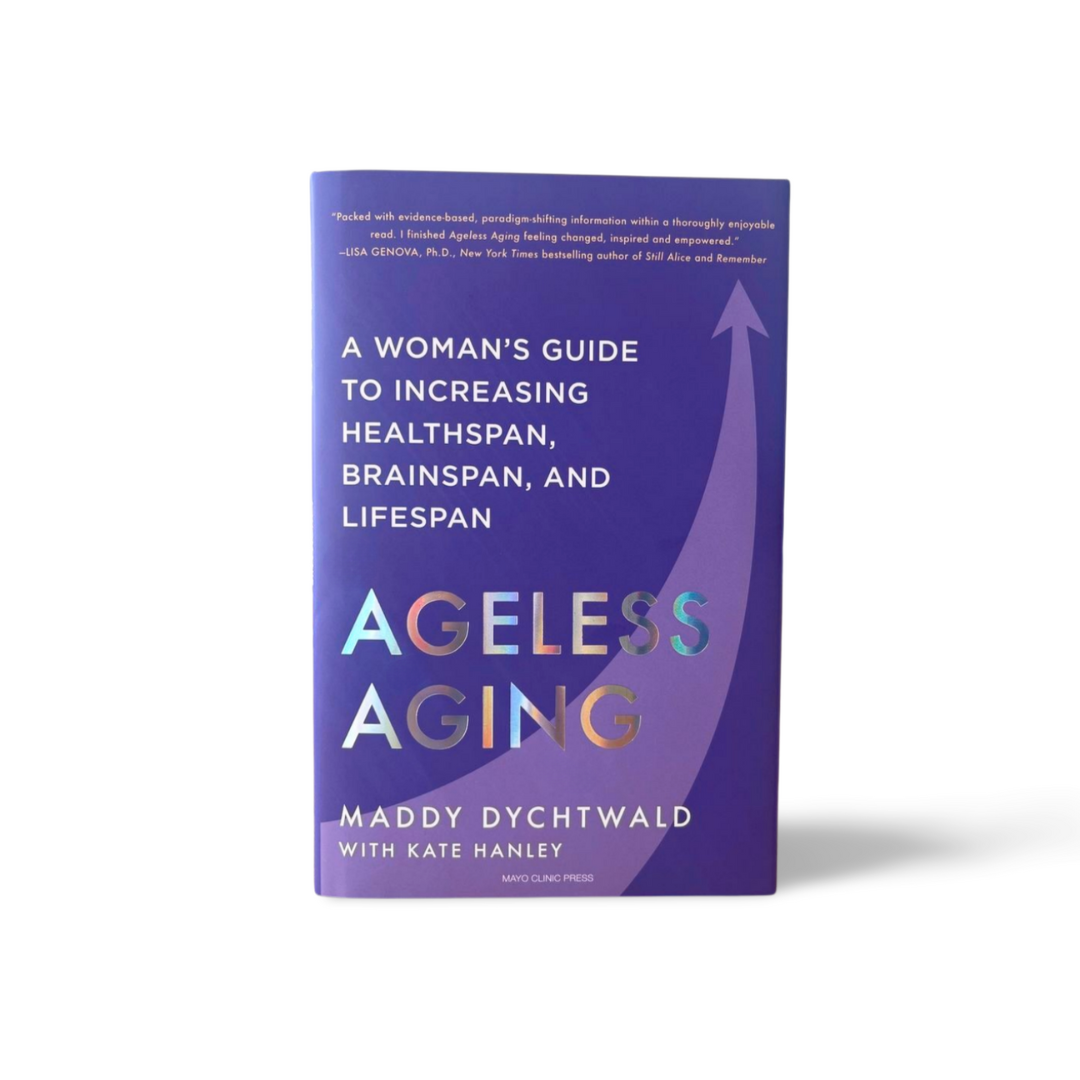
Relevant reading
Ageless Aging
Women typically spend the last 14 years of their lives in a cascade of health issues. And while current research suggests that some 70 to 90% of your health and longevity is under your control—rather than at the mercy of your genes—the reality is that most women are not taking…

